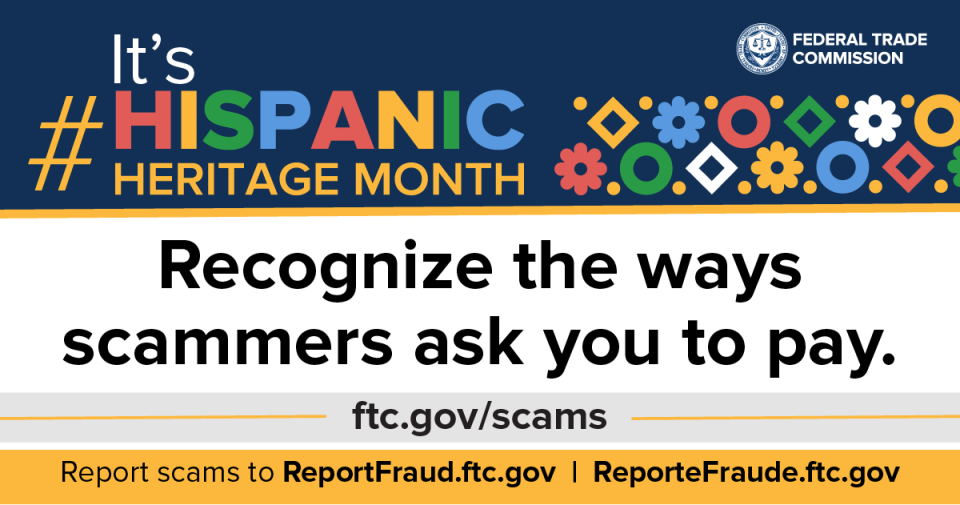In honor of Hispanic Heritage Month, we’re raising awareness about scams targeting Latino communities. Today, we’re focusing on the different ways scammers ask (or tell) you to pay. No matter what they say, don’t pay scammers ni un centavo (not a cent).
Scammers make up lots of stories about why you need to pay — and pay quickly. They’ll pretend they’re calling from the government — like the IRS, Social Security Administration, or Customs and Border Patrol. Or they’ll say they’re with a business, utility, charity — or a tech company like Microsoft or Apple and say your computer has a virus that needs fixing. (It doesn’t.) They might even call about a family emergency. Whatever the “reason”, they’ll pressure you to act immediately by paying money. Don’t pay them.
Here are some ways that scammers will tell you to pay:
- “Pay us by putting money on a gift card and then give us the number on the back.” — That’s a scam.
- “We’ll send you a check. Deposit the check, and then send us the money.” — That’s a scam.
- “Pay us by sending money through a money transfer company like MoneyGram or Western Union.” — Also a scam.
- “Go to a store with a cryptocurrency ATM, put your money in to buy cryptocurrency, and use this QR code to send it to this address.” — Yep: scam.
If a scammer asked you to pay, report it at ReportFraud.ftc.gov or, in Spanish, at ReporteFraude.ftc.gov. Then tell your loved ones and people in your community so they can avoid the scam, too.


As a 67 year old man living alone being grateful for the internet, I wonder at times whether or not certain websites are legitimate as well as those who track you to know you are online because my landline phone rings when I travel the web. THANK YOU KINDLY.
The scammers not only scam Spanish or Latinos but also other people.
I have been scammed last year and till now American Express bother me that I should pay when I have not even used any item from $4500/- which the scammers made me use my credit card to buy the cards. I had complained with the Police Department and also with FTC I have the complaint report from both and was advised not to pay them anything except to settle my amount that I had used before the scam happened.
They are trying to threaten me everytime that they will ruin my credit.
Hope your guys give the same attention to Italian Heritage month which always is in October .
Let's see what happens